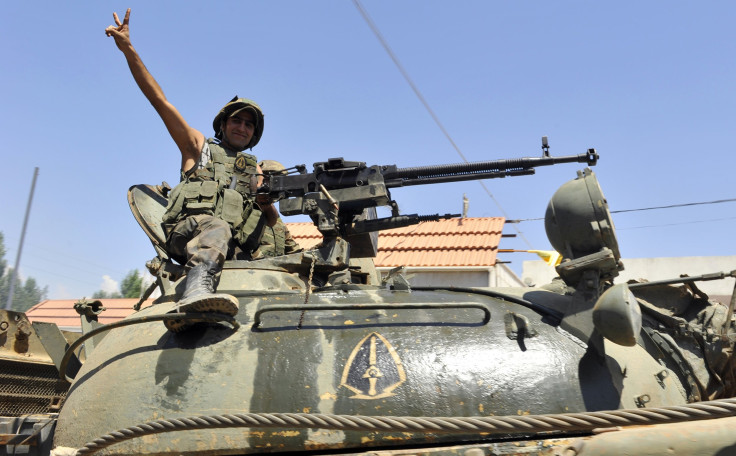Lebanese Military Receives $1B Aid From Saudi Arabia While Clashes Resume

Saudi Arabia on Wednesday gave $1 billion to Lebanon’s army to help it protect the region from attacks by Islamist insurgents, even as clashes continued during a 24-hour cease-fire.
Although the cease-fire has not been called off, the Lebanese military said that it will continue to react to attacks from insurgents, suspected to be from the al-Qaida arm of the Nusra Front, which took control of the border town of Arsal, about 77 miles northeast of Beirut. The cease-fire, which was brokered on Tuesday, was reportedly ineffective as clashes continued in the area, while some local reports claimed the army had made inroads into the region forcing the insurgents to begin pulling out of the city.
“This aid is very important especially at this time when Lebanon is fighting terrorism,” former Lebanese Prime Minister Saad Hariri said, according to Al Arabiya, a local news agency.
The latest round of fighting began Saturday between Islamist forces and the Lebanese army, and until now, 17 Lebanese soldiers have been killed and 22 are reportedly missing.
“There was a ceasefire, but it is not being implemented," Ali Hujeiri, Arsal's mayor, said according to Reuters, adding: "The army is still there, the gunmen are still there, and the ones suffering are the civilians."
Lebanon, which has a population of about four million people, is currently providing refuge to more than one million Syrians while General Jean Kahwaji, the country’s army chief, also asked France on Tuesday to expedite the delivery of weapons bound for Lebanon.
The aid from Saudi Arabia accompanies the oil-rich nation's efforts to finance the purchase of French military equipment and arms for the Lebanon army. Up until now, Lebanon has stayed away from the ongoing strife in neighboring countries, but of late, the violence has spilled across the region's volatile borders.
The European Union said, according to Associated Press, that it is "deeply concerned by the severe security, political, economic and social challenges Lebanon is facing as a result of the conflict in Syria."
Lebanon, which borders Syria to its north and east, has seen its political leaders being divided along sectarian lines following the long-running unrest in Iraq and Syria, which has witnessed the killing of nearly 170,000 people, and the displacement of hundreds of thousands of others since the beginning of the civil war in 2011, Reuters reported.
© Copyright IBTimes 2024. All rights reserved.












